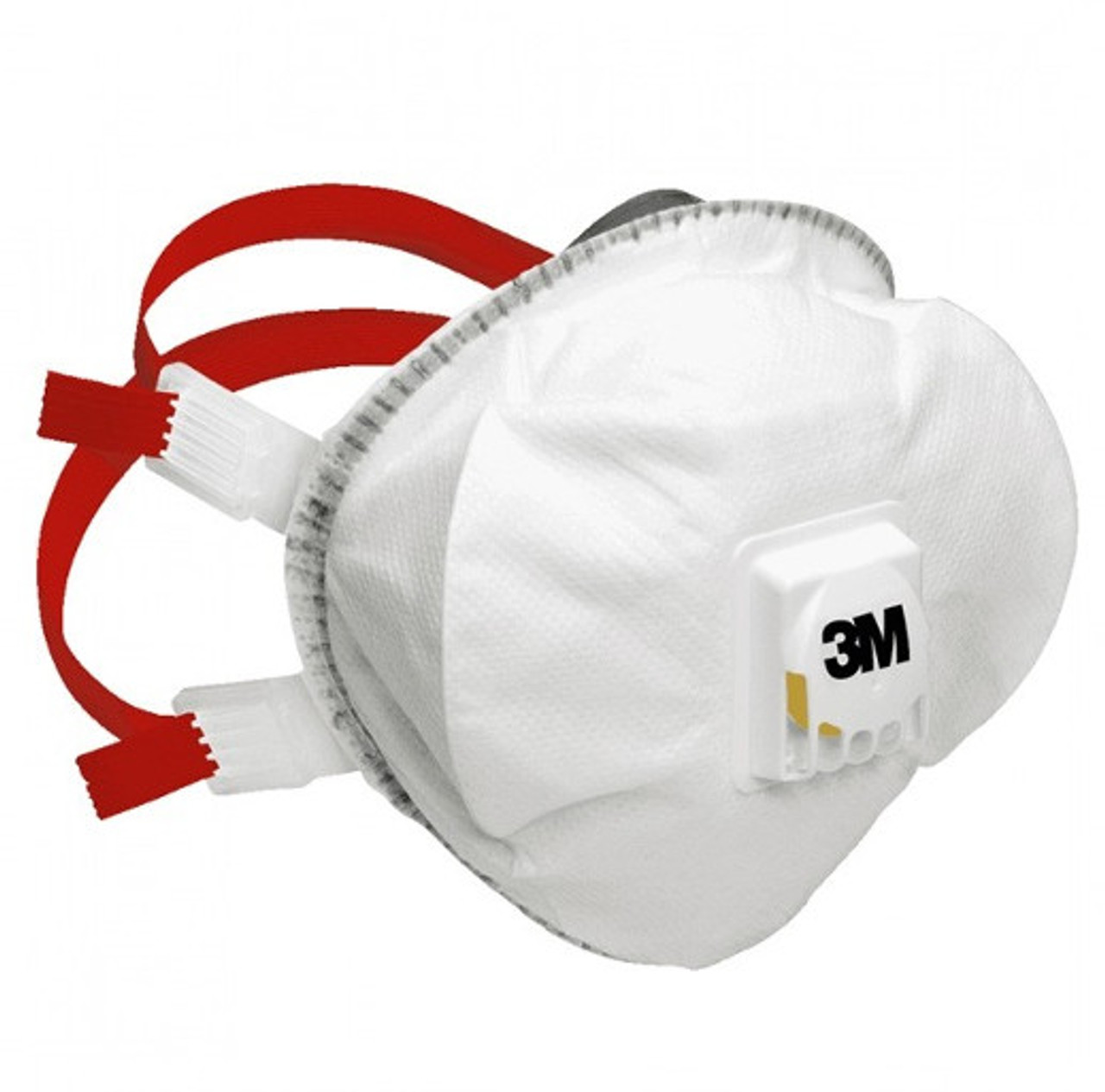Clearing the Air: A Woodworker’s Guide to Facemasks from Dust to Finish
2nd May 2024
Clearing the Air: A Woodworker’s Guide to Facemasks for Dust and Finish
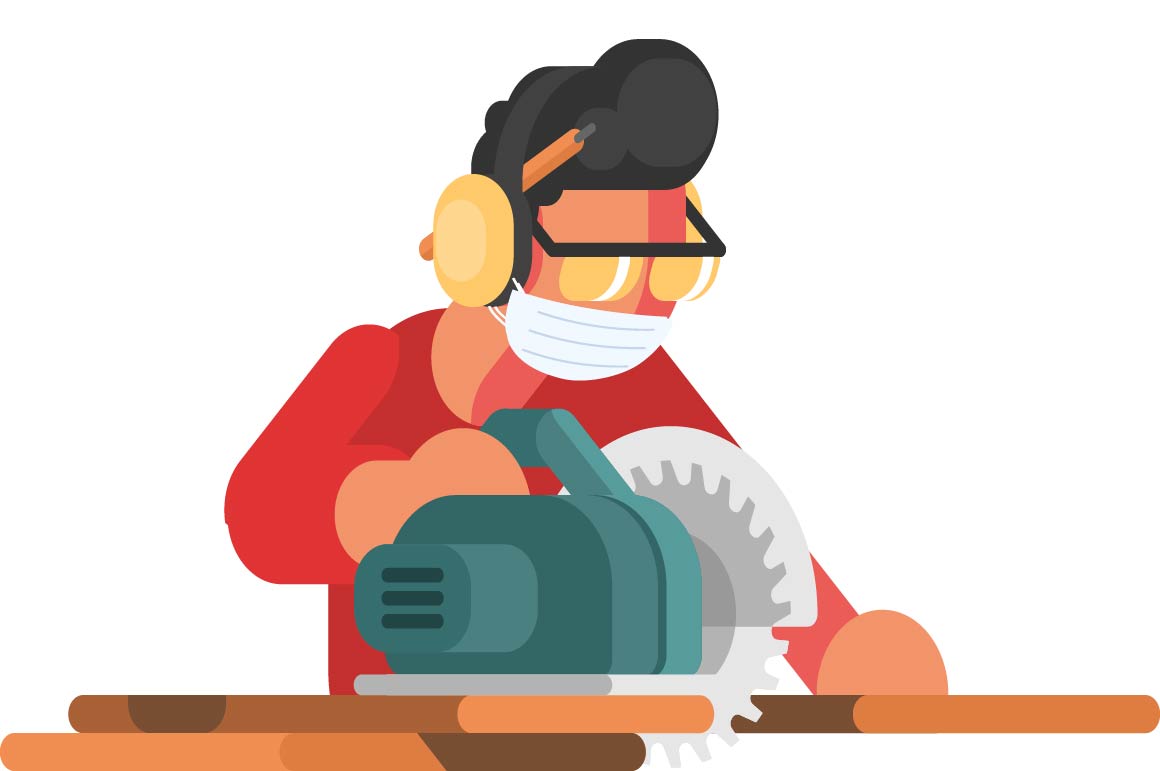
Woodworking is an art that transforms raw materials into pieces of beauty and utility. However, this transformation process, from cutting and sanding to applying finishes, generates wood dust and chemical vapors that can pose significant health risks. The key to enjoying your craft safely lies in choosing the right facemask. This guide dives deep into the world of facemasks, helping you to select the perfect match for every stage of your woodworking projects.
Understanding wood dust.
So wood dust is more than just a nuisance. Generated during cutting, sanding, and shaping, these fine particles can come from various types of wood, each with its unique risks. Hardwoods, for example, are often more hazardous than softwoods. Inhaling wood dust can lead to respiratory issues and allergic reactions.
Types of Masks
Disposable Dust Masks Simple yet effective, disposable dust masks are a must-have in any woodworker's safety kit. Best for light sanding and cutting, these masks are affordable and can be used until they get clogged or damaged.
See our suggestions below:
3M 8835+ FFP3 Reusable Valved Dust Mask
The 3M 8835+ respirator is a highly regarded mask which provides effective protection, enhances user comfort and breathability, and offers a durable solution when working in a woodworking setting.
GVS Elipse P3 R Half-Face Respirator Mask

The GVS Elipse Half Mask stands out for its compact, lightweight design which ensures comfort This mask is equipped with a highly efficient P100 filter offering protection against fine wood dust, as well as oil and water mists. The mask features low breathing resistance, enhancing a more comfortable fit.
The durability eases maintenance and makes replacing the filters easier.
Reusable Half Mask respirators:
A reusable half mask respirator is strongly advised for those handling wood dust, as it significantly enhances safety, comfort, and cost-efficiency. The filters for these masks, which are sold separately, will be detailed later in this article regarding their selection and use. Available in three sizes—Small, Medium, and Large—these masks provide adjustable and comfortable fits tailored for long-lasting durability and multiple uses.
3M 7500 Series Half Mask Reusable Respirator

Alpha Sentinel Half Mask
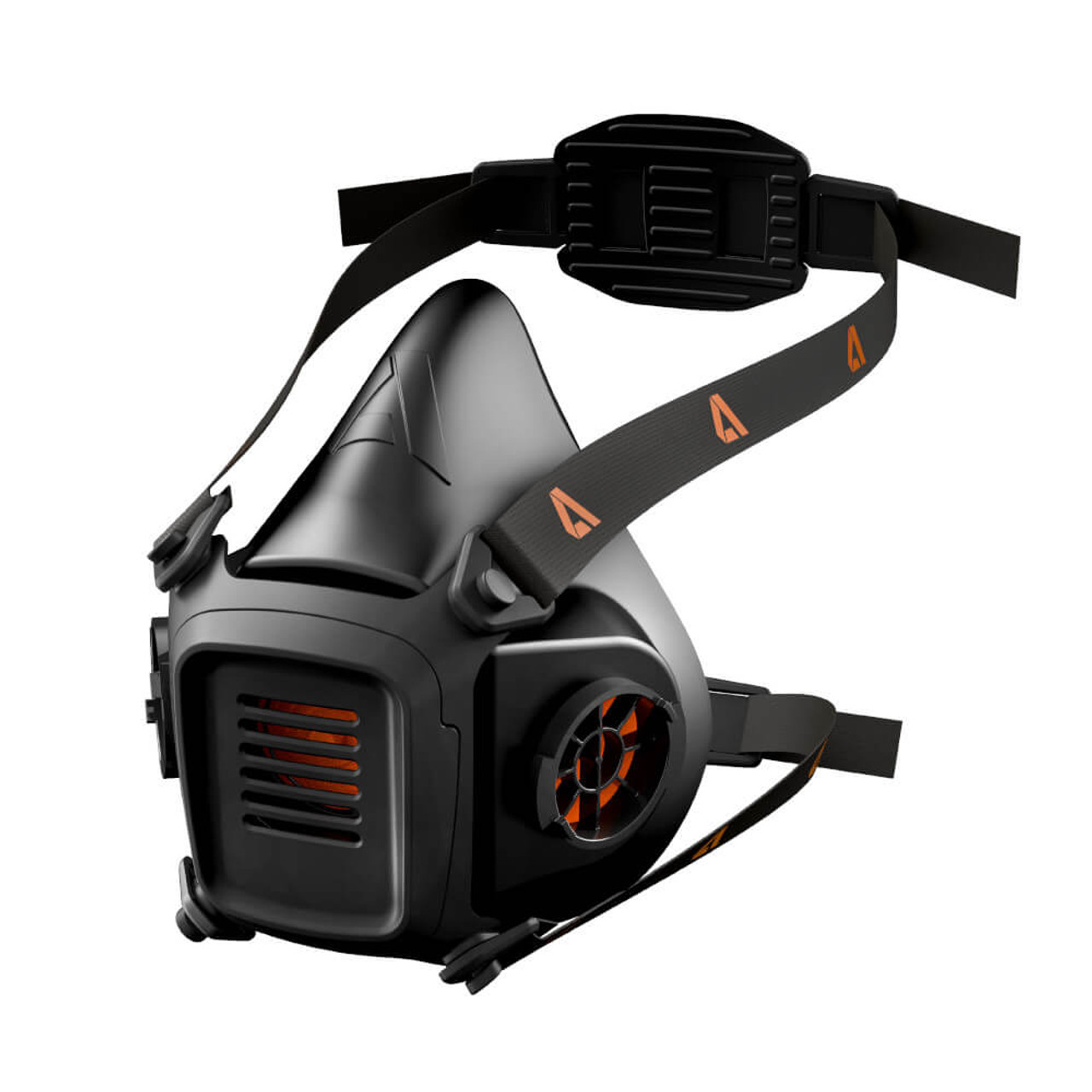
Reusable Full Face Respirators:
A Reusable Full Face Mask Respirator is great for working in places with a lot of wood dust. It covers your entire face, protecting your eyes, nose, and mouth from the fine dust that comes from activities like sanding or cutting wood. These masks use high-quality filters that trap almost all airborne particles, keeping your lungs safe. They are comfortable to wear, with soft seals and large clear visors that let you see well, helping you work safely and accurately. These masks are durable, can be used many times, and meet strict safety standards, making them a smart and reliable choice. They also have special features to prevent the visor from fogging up and to help you breathe easily while working.
3M 6000 Series Reusable Full Face Respirator Mask
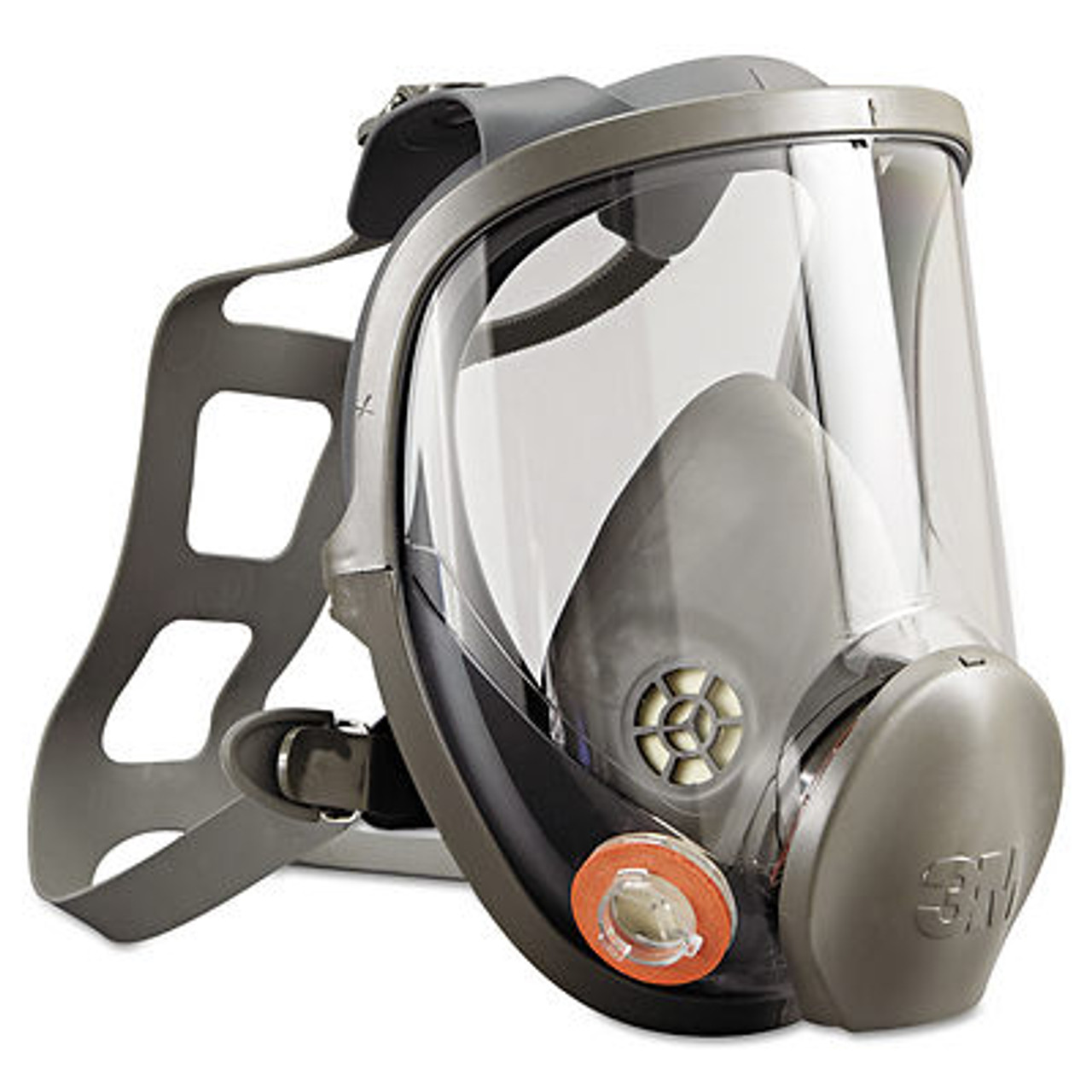
Alpaha Sentinel Full Face Mask
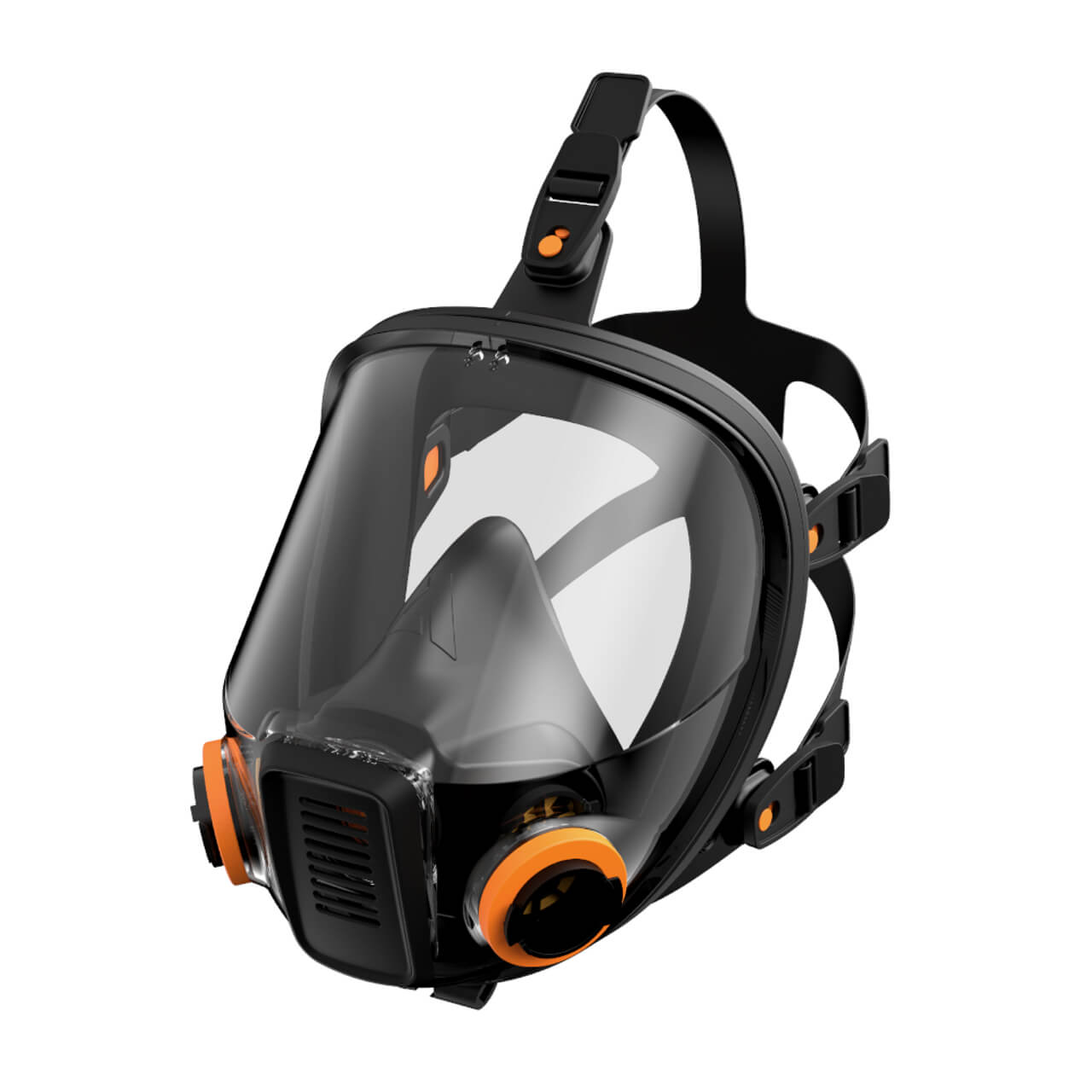
Types of Filters
Particulate Filters:
P3 filters are ideally suited for environments with wood dust due to their exceptional filtration efficiency, capturing at least 99.95% of airborne particles, including ultrafine wood dust particles.
These filters are designed for durability, making them suitable for extended use in harsh woodworking conditions. They offer versatility as they can be used in both half-mask and full-face respirators, allowing flexibility across different levels of exposure and tasks.
Using P3 filters helps ensure compliance with workplace health and safety regulations, providing critical respiratory protection and maintaining the health of workers. Overall, P3 filters provide robust protection, making them a crucial choice for anyone exposed to wood dust in their work environment
Gas/Vapour Filters:
Gas/vapor filters are highly beneficial in environments where workers are exposed to both wood dust and chemical vapors from finishing jobs.
These filters provide dual protection, effectively capturing harmful gases emitted by varnishes, stains, and paints. They are specifically designed to target and absorb specific types of chemical vapors, enhancing workplace safety by reducing the risk of respiratory issues linked to these chemicals.
Their versatility across various respirator types also allows for flexible use in different tasks, making them an essential safety component in woodworking and finishing operations.
Combination Filters:
Using both P3 and gas/vapor filters together is ideal for workplaces dealing with wood dust and chemicals from finishing jobs.
The P3 filters capture over 99.95% of tiny wood particles. At the same time, gas/vapor filters remove harmful gases and vapors released by products like varnishes and paints, which are common in finishing work. This combination ensures complete protection against both solid particles and chemical fumes, making the working environment safer and healthier. It's a versatile solution that can be adjusted for different tasks, providing the right protection when needed.
Choosing the Right Mask and Filter

Selecting the right mask and filter depends on the woodworking task at hand. Consider the material you are working with, the environment (ventilation), and the duration of exposure. Hobbyists might lean towards simpler masks for occasional use, while professionals may need more robust systems, such as a POWERED AIR RESPIRATORS.
Conclusion
Investing in the right masks and filters is crucial for any woodworker looking to maintain a safe workshop environment. By understanding the various options and how they fit into your woodworking routine, you can ensure your respiratory health is never compromised.




